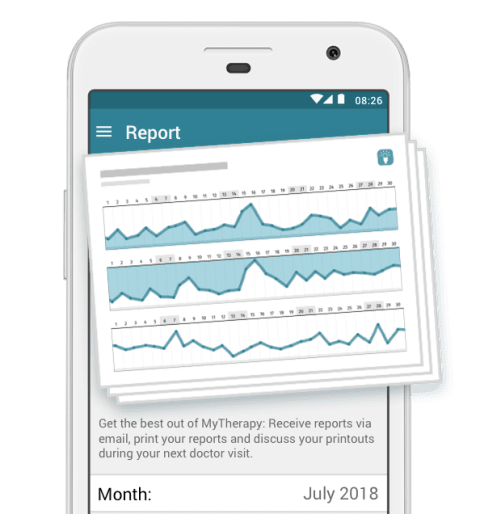The aches and pains that are symptomatic of psoriasis and psoriatic arthritis can disrupt sleep. Beyond that, however, there is a growing pile of evidence linking psoriasis to sleep apnea, a disorder that causes your breathing to repeatedly stop and start as you sleep. It can be a serious condition, with diabetes and heart disease among its common comorbidities. So, if you’re living with psoriasis, should you be concerned about your sleep?
What is Sleep Apnea?
Sleep apnea causes your breathing to stop and start while you sleep. The most common form of sleep apnea is called obstructive sleep apnea, which is caused by muscles in your throat relaxing and subsequently narrowing your airway.
It means you don’t get enough air or oxygen. Your body reacts to this by partially rousing you from your sleep (but not fully, so you probably won’t be conscious of it happening), allowing breathing to return to normal. It can happen hundreds of times per night.
Sleep apnea is not only linked to an array of conditions, including heart disease, high blood pressure, and type 2 diabetes, a lack of uninterrupted sleep will likely impair how you function throughout the day. It’s been found that people with sleep apnea are 2.5 times more likely to have a car crash compared to the general population.
Sleep apnea is clearly a serious condition and can have serious consequences. So, what has this got to do with psoriasis?
The Link Between Psoriasis & Sleep Apnea
On the face of it, psoriasis and sleep apnea don’t seem to have a lot in common. However, we now know that psoriasis is likely an autoimmune disease and characterized by inflammation, which is where the link may be found.
There is evidence that 36% to 81.8% of people living with psoriasis also have obstructive sleep apnea. Even at the lower end of the scale, the figure is significantly greater than the general population, which is estimated to be 2% for women and 4% for men.
Other posts you may be interested in on the MyTherapy blog:
What’s more, it seems that the relationship works both ways: those with psoriasis are more likely to develop sleep apnea, and those with sleep apnea are more likely to develop psoriasis.
It is not fully understood why this relationship exists. It has been suggested that sleep apnea has pro-inflammatory characteristics, as demonstrated in a study that found continuous positive airway pressure (CPAP) treatment for sleep apnea improved levels of inflammatory markers.
CPAP treatment involves wearing a mask while you sleep, which is attached to a ventilator that delivers a constant flow of air pressure, helping keep your airway open. If it helps reduce inflammation in the body, it stands to reason that there is some inflammatory mechanism related to sleep apnea, which could help explain its link to psoriasis.
Aside from that, psoriasis and sleep apnea share similar common comorbidities, such as type 2 diabetes and heart disease. One theory is that risk factors such as obesity and smoking may be the common factor. Although the relationship between psoriasis and obesity is not well understood (inflammation may again be related), people with psoriasis are more likely to be obese, with the likelihood increasing with the severity of psoriasis.
Similarly, there is evidence that smoking triggers psoriasis. Both obesity and smoking are heavily linked to sleep apnea.
It could, therefore, be that psoriasis and sleep apnea share biological similarities regarding inflammation, as well as shared risk factors, such as obesity and smoking. Combined, this may explain the connection between the two conditions.
Why Sleep Apnea Should be Taken Seriously
Regardless of the underlying mechanisms that link psoriasis and sleep apnea, the relationship certainly seems to exist. Given the potentially serious nature of sleep apnea, it is therefore worth thinking about if you have psoriasis.
Aside from heart disease, type 2 diabetes, and high blood pressure, sleep apnea is believed to increase your risk of a stroke or heart attack.
Aside from your own wellbeing, sleep apnea may even harm your partner and loved ones. Loud snoring is one of the most common symptoms of sleep apnea, which can keep those sleeping near you awake.
Quite aside from being frustrating for others, it can cause long-term disruption to their sleep and, over time, lead to symptoms of sleep deprivation.
What Should You Do?
Having psoriasis or psoriatic arthritis doesn’t mean you will have sleep apnea, but it may mean you are at an increased risk of it. Other risk factors include:
- Being overweight or obese
- Age (the risk of sleep apnea increases with age)
- Family history
- Large neck circumference
- Underactive thyroid (hypothyroidism)
Sleep apnea is also more common if you smoke and if you drink alcohol excessively (particularly shortly before sleeping).
Common symptoms of sleep apnea that you may notice yourself include:
- Sleepiness/fatigue/inability to concentrate during the day
- Headaches when you wake up
- Memory loss
- Irritability
- Dry mouth in the morning
- Waking up in the night choking or gasping
Symptoms that occur throughout the night, that you may not notice, include:
- Loud snoring
- Pauses in breathing
If you believe you may be at risk of sleep apnea and notice any of the symptoms (or someone else informs you of them), it is worth speaking to your doctor. An apnea test can be performed to check whether or not you have the condition.
CPAP treatment can be effective in helping you breathe properly while you sleep and mitigate your risk of subsequent complications. What’s more, it may even reduce the inflammatory response of sleep apnea, helping ease the symptoms of psoriasis.
Take a look at some of the other posts on the MyTherapy blog:



